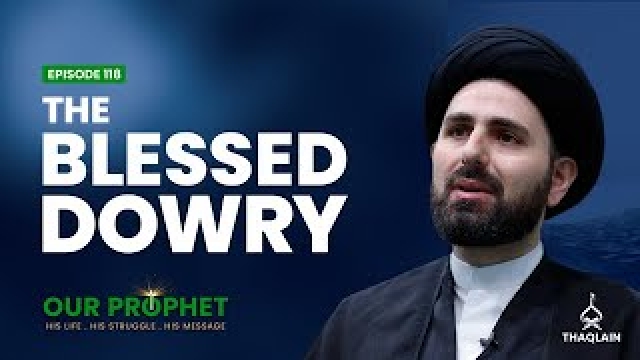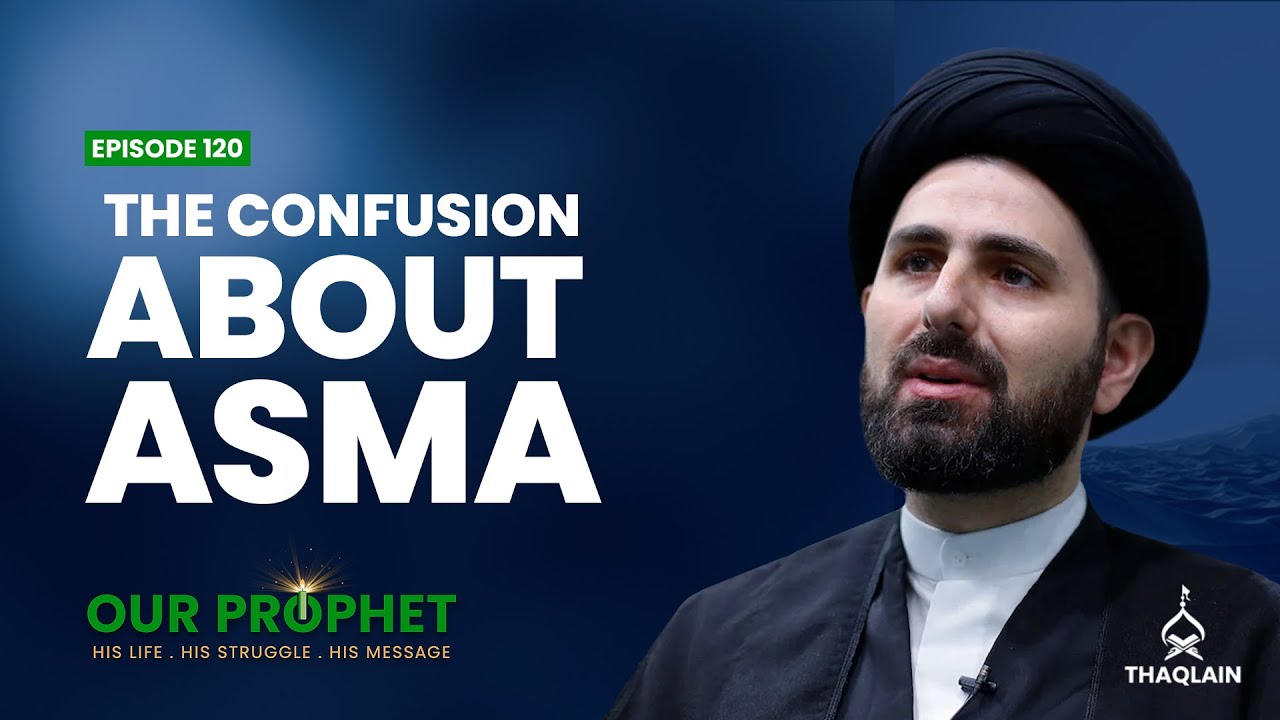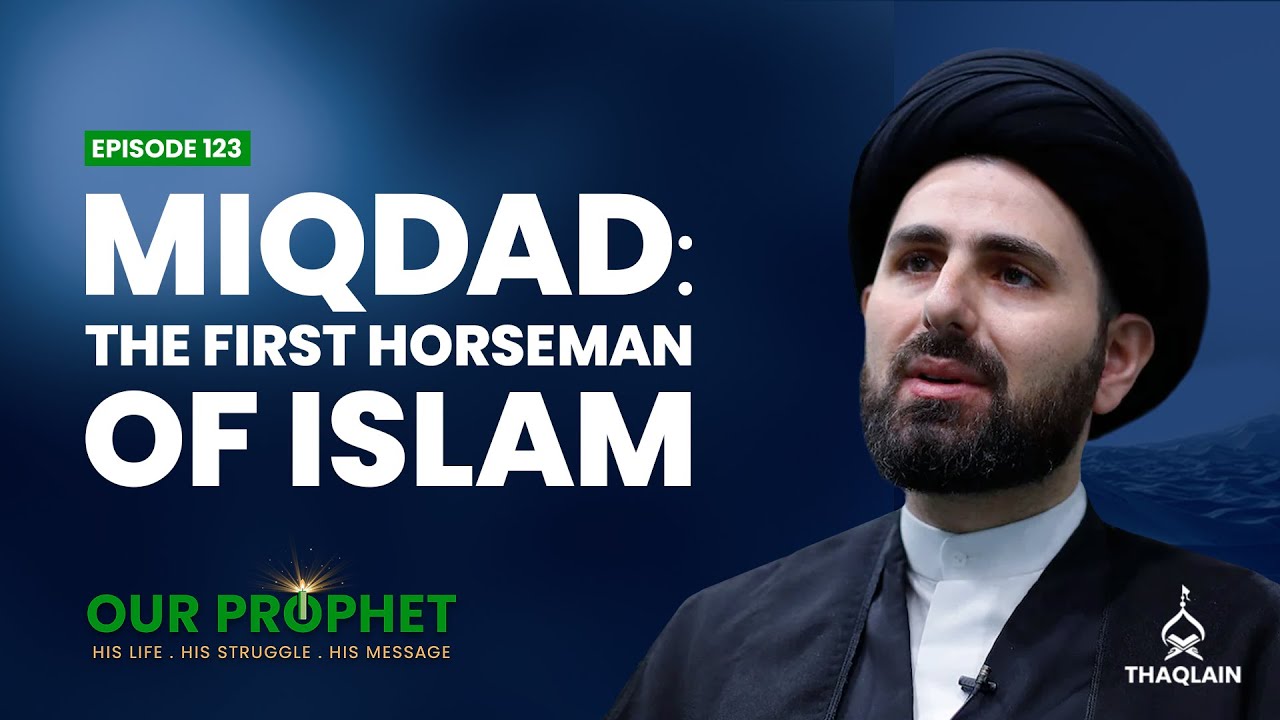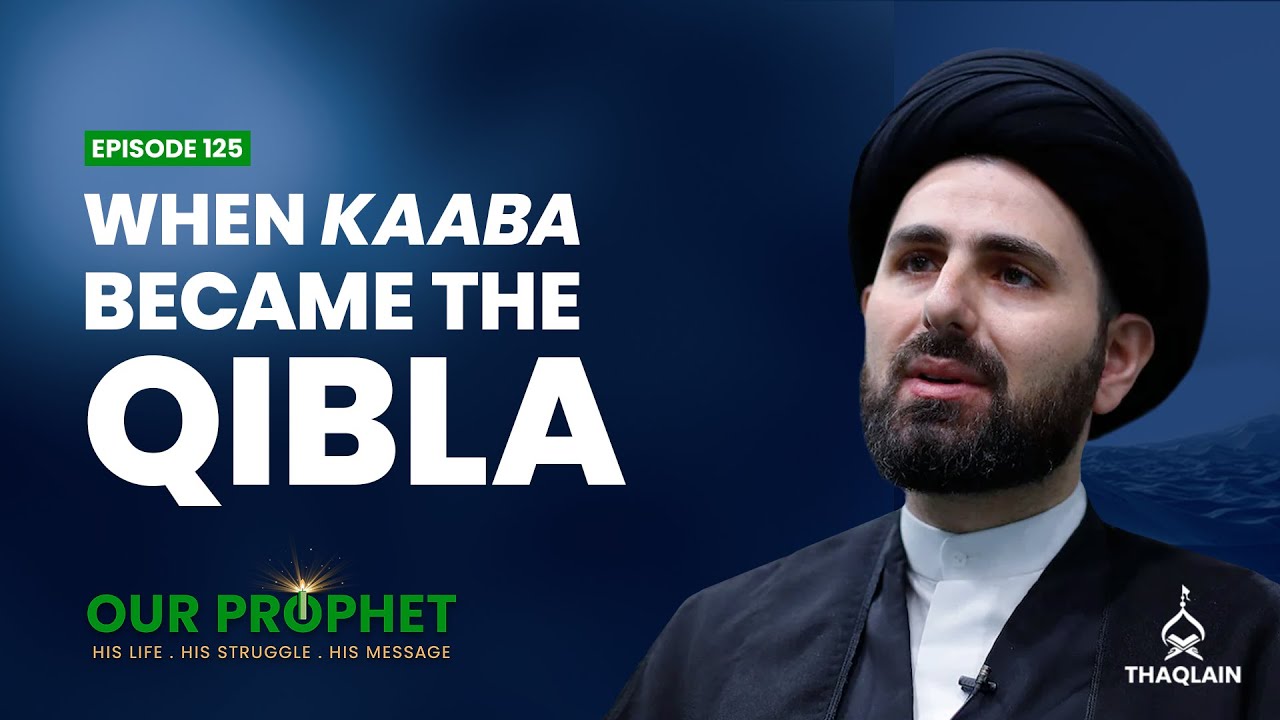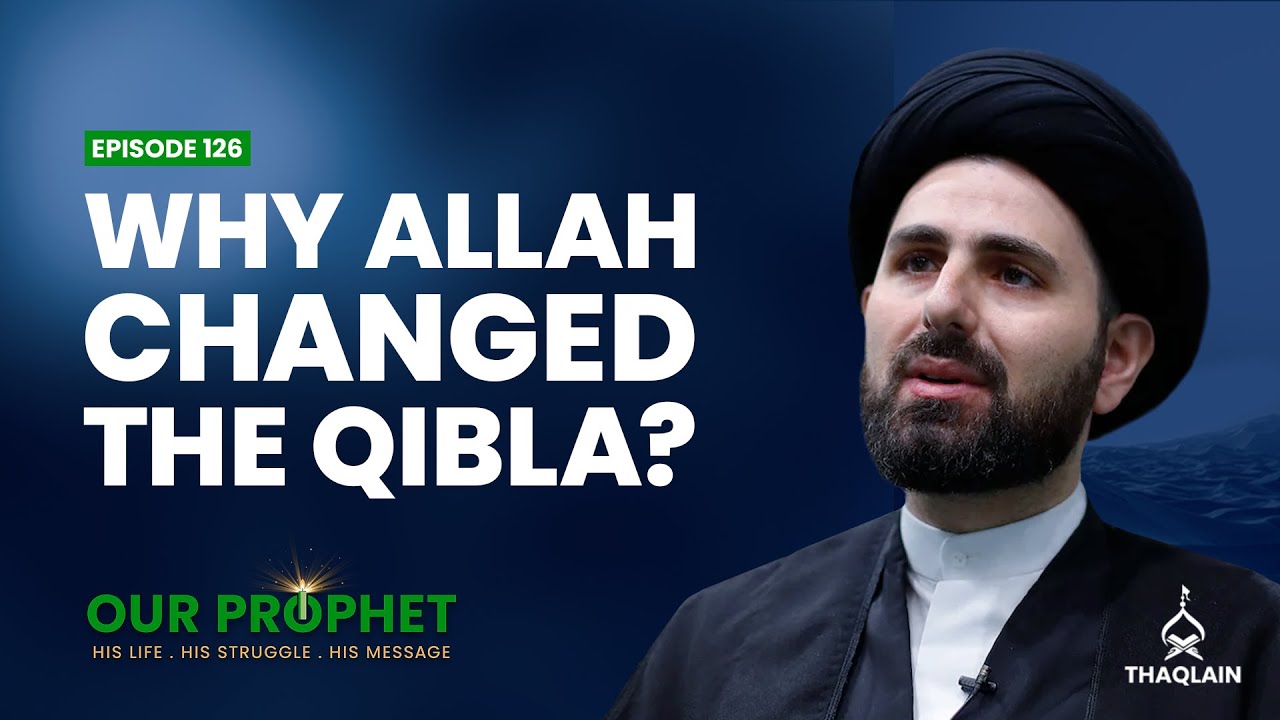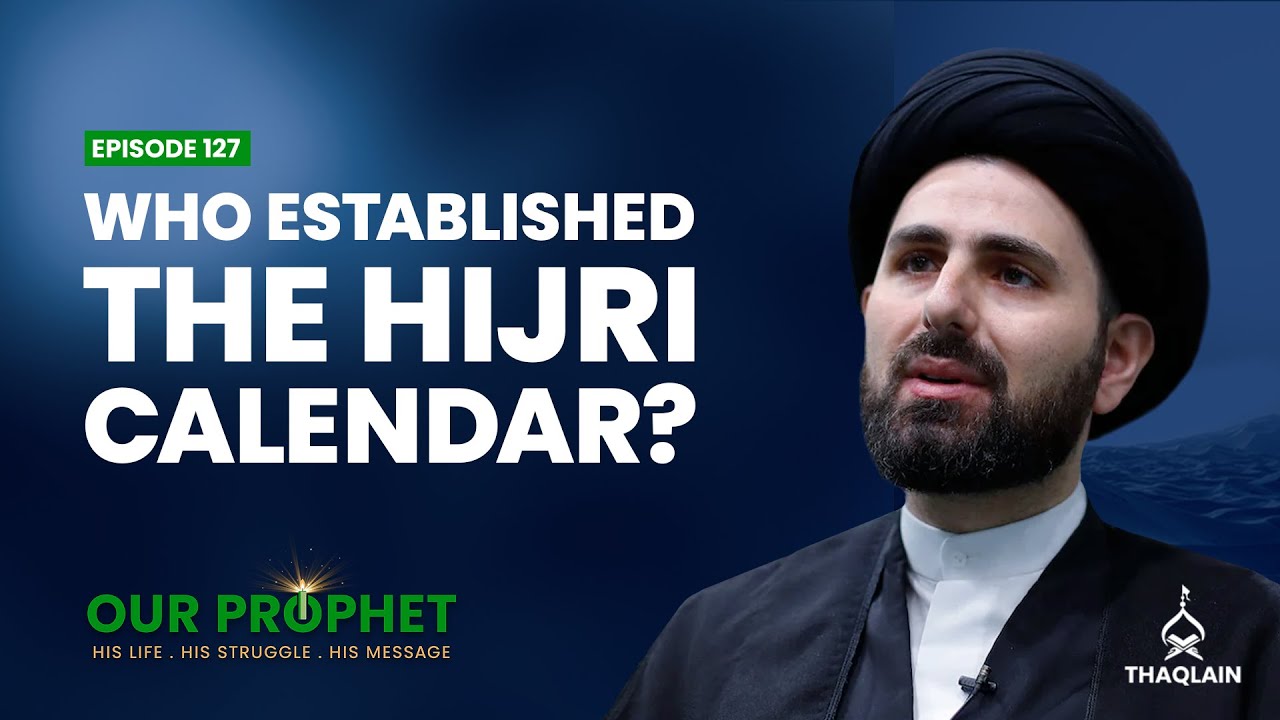What Made The Charter of Medina Unique? - Our Prophet 6 - 104/127
Previously, we examined the very important document and the constitution that the holy Prophet, salla Allahu alayhi wa alihi, signed with the citizens of Medina. Whether the Muslims who came from the A'us and the Khazraj, or the various Jewish tribes who lived in Medina and in the outskirts of the city of Medina. There were eight main Jewish tribes from the A'us and the Khazraj.
The Prophet, salla Allahu alayhi wa alihi, initially signed the documents with them. Then, after the Prophet, salla Allahu alayhi wa alihi, signed the constitution with them, the three main Jewish tribes who did not come from Arab ancestry, those eight came from Arab ancestry. The three main Jewish tribes in Arabia who did not come from Arab ancestry were Banu Qaynaqa, Banu Quraydha and Banu Nadhir.
Then they came to the Prophet, salla Allahu alayhi wa alihi, when they heard about the document and they told him, Oh Muhammad, we also want to sign a document with you. Let's make an agreement. When it comes to those eight tribes, the Prophet is the one who took the initiative. It was his idea to make peace with them and to sign this treaty.
But those three main tribes, Banu Qaynaqa, Banu Quraydha and Banu Nadhir, they came to the Prophet and it was upon their request that the Prophet signed. This is very important in knowing the events that would unfold later. It was at their request. The Prophet did not force them. The Prophet did not impose on them. They came to the Prophet. Basically, they told him, it's a beautiful document that you signed with these eight Jewish tribes in Medina from A'us and Khazraj. We also want to sign a similar document with you and the Prophet, salla Allahu alayhi wa alihi, agreed.
Now, the Prophet, salla Allahu alayhi wa alihi, when he signed this document with them, he stipulated a condition. I'll translate to you the condition the Prophet stipulated. He says, the Prophet makes this agreement with the three groups. Who are those three groups? Banu Qaynaqa, Banu Nadhir, Banu Quraydha, to the effect that they will not harm him. That's a condition. I will make peace with you, we are Ummah, one community. Your enemies are our enemies, your friends are our friends, will protect everyone.
But on this condition, they will not harm the Prophet or his friends, with their tongues and hands. Peace! And will not supply arms and mounts to his enemies. In case, they act against the contents of this agreement, the Prophet makes it very clear what the consequences will be. So, there will be no surprises. You are making it very clear. If you violate this agreement, what are the consequences? The Prophet would be at liberty to shed their blood, meaning to fight them. This is just an Arabic expression. Confiscate their properties, meaning their lands, and make their woman and children captives.
Now, in our last class, we talked about women and children being taken as captives. Is that humane? Why did the religion of Islam allow that in certain circumstances? We had a discussion about this in detail, and it is a very, very important and sensitive discussion, especially women who are taken as slaves. We examined the circumstances and the conditions and the philosophy behind it.
So, the Prophet, salla Allahu alayhi wa alihi, makes this very clear from the outset. Then Hay Ibni Akhtar, he signed on behalf of Banu An-Nadhir. Ka'b Ibn Asad on behalf of Banu Quraydha, and Mukhairi on behalf of Banu Qaynaqa. These were the signatories of that document. So, this was truly an amazing treaty that the Prophet, salla Allahu alayhi wa alihi, signed with the people of the Book, specifically the Jewish tribes. Now, to summarize why this treaty was so important.
First of all, the Prophet introduced a newer phenomenon which was called one Ummah, one nation. Arabia was divided along tribal lines. You are from my tribe, I defend you even if you are a murderer. There was no sense of justice. The Prophet, salla Allahu alayhi wa alihi, creates one Ummah, let's unite. Bring various tribes in Medina. People came from Mecca, from other areas.
So, the Prophet had various tribes unite together, not just tribes, but also different religions. The Prophet actually invited the Jews to be one Ummah. You are one nation with us, we live peacefully, we will do business with you, we will come to your markets, will coexist. And that's beautiful that the Prophet, salla Allahu alayhi wa alihi, in 7th century Arabia, in that lawless peninsula, the Prophet, salla Allahu alayhi wa alihi, creates this document.
Secondly, we find that the Prophet gave Jews religious freedom, that's religious tolerance. The Prophet did not impose on them to become Muslim. He did not force them to become Muslim. No. The Prophet says you have your religion, I have my religion. You respect us, we respect you. Don't harm us, we won't harm you. Don't conspire against us, we won't conspire against you. This was the agreement that the Prophet, salla Allahu alayhi wa alihi, made with them. And he made it very clear that their property, their religion, their woman, their children will be safe and sound if they do not break their agreement.
In fact, one of the clauses of the Constitution states, the Jews shall maintain their own religion. These are the actual words of the Constitution the Prophet signed with them. The Jews shall maintain their own religion, and the Muslim, they shall maintain theirs. Loyalty is a protection against treachery. The close friends of Jews are as themselves. The Prophet is even giving the special status, not just to the Jews, to their friends as well, that if you Jews have friends, there are tribes who are your allies, good with you, we will also respect them, we will also be at peace with them. The Prophet made this very clear.
Now, in the end, the Prophet makes it very clear that if there is any disagreement about this constitution, any disputes, we need to appoint an arbitrator, someone who would resolve the disputes. And that, arbitrator, is Muhammad, salla Allahu alayhi wa alihi. Some Orientalists, they come and say, look, that's biased, that's unfair. He is signing a document with them and he is the arbitrator in matters of dispute, that is not a fair agreement.
The response to that is that the Prophet, salla Allahu alayhi wa alihi, was known by everyone in Arabia to be what? Trustworthy! Even the enemies that he had in Mecca, they recognized that the Prophet never lied, never deceived, never broke a promise in his life. So, he was the best candidate to be the arbitrator. Who can you bring someone better than him? Muslims and non-Muslims alike recognized that the Prophet's track record, his history shows he never broke a single promise in his life.
So, that's why he's the arbitrator, not because he was being biased and he wanted things to go his own way. And remember when the Prophet, salla Allahu alayhi wa alihi, appointed himself as the arbitrator, did the Jews say no? They didn't. In fact, we find the three main Jewish tribes after this document, they come and ask the Prophet to sign this document with them. So, that means the Jews, initially they were okay with this, that the Prophet, he himself is the arbitrator.
And the Prophet never imposed on them. He never told them, hey, if you don't sign this, I'm going to kill you. It was an offer that he made, a suggestion that he made and they accepted. So, it was completely out of their own will that they accepted the Prophet, salla Allahu alayhi wa alihi, to be the arbitrator. Now later we see they will reject this. But, in the beginning they accepted this.
So, it's very important to consider this document when we see how many of these Jewish tribes violated almost every clause that they signed on in this document. This is very critical. And unfortunately, a lot of these non-Muslims orientalists, when they look at the history of the Prophet, and why he expelled some of them from Medina, why he fought some of them, oh, look at the Prophet, he is not a man of peace, why did he fight them? Well, we have to see how the events transpired. It all started with this peaceful, beautiful document, the Prophet gathered all of them and they signed willingly. No one forced them to. Then they were the ones who broke this treaty.




























